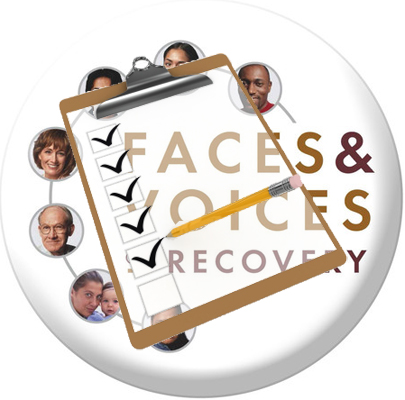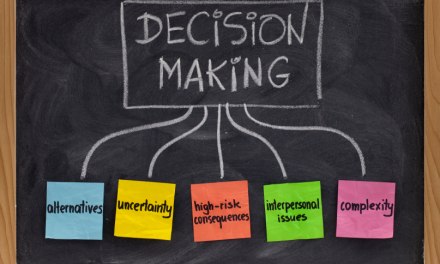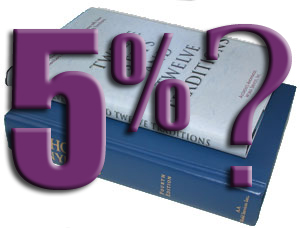First Nationwide Survey Documents the Many Benefits of Sustained Recovery from Addiction to Individuals and to the Nation
The many costs of drug and alcohol addiction— to individuals, communities and to the nation— are well documented. Figures are in the hundreds of billion of dollars annually. For the over 43 million Americans directly affected by addiction, however, it’s not about numbers. It’s about lives cut short or turned upside down, families disrupted. It’s about people. Loved ones. Ourselves, perhaps. But numbers talk, they move policy makers and businesses to action in ways that lost lives often do not.
Many federally-funded studies have documented the usefulness of addiction treatment. As may be expected, they tend to focus on substance use outcomes-i.e., does substance use decrease after treatment? The better studies also look at change in behaviors often categorized as ‘public health and safety’: Whether or not crime goes down after treatment. Do risky practices associated with acquiring and/or transmitting infectious diseases like HIV/AIDS or Hep C decrease? And, does employment increase? The answer to all these questions is usually yes: Addiction treatment, especially for longer durations, does lead to reductions in substance use, crime and risky behaviors and to greater likelihood of employment.
But people don’t seek recovery to reduce risky behaviors or even to get a job. Our studies show that people seek recovery because they want better lives. A ‘normal’ life. Research funding to document the experiences and needs of the estimated 23.5 million people in recovery in the United States (10% of US adults) has been scarce.
What little we do know about how lives change (i.e. improve) as a function of recovery comes from people in treatment (only about 10% of addicted individuals) and focuses on outcomes of interest to society rather than the individual. The recovery community has been largely neglected by addiction researchers and policy makers alike, though this is beginning to change in light of White House Drug Policies emphasizing the need to promote and maintain recovery.
Documenting the experiences and benefits of recovery to individuals and society is critical to communicating that recovery is attainable and desirable. It can inform policy makers about the benefits of policies that promote rather than hinder recovery. It can encourage more research on how people get well, and provide support for reducing stigma and discrimination.
Faces & Voices of Recovery and I conducted the first nationwide survey of persons in recovery from alcohol and other drug problems to begin documenting the benefits of recovery to the individual and to the nation. The online survey included items representing experiences in terms of work, health, finances, legal, family life, and civic activities (e.g. voting). People were asked to report whether each of these experiences had happened to them while they were in active addiction, then, since they had been in recovery; 3,228 surveys were completed between November and December 2012.
The survey findings document the costs of active addiction in terms of health, finances, work, family life, and criminal justice involvement (including important gender differences that must be addressed at the service level). Most notably, however, the survey is the first to document the dramatic improvements people experience in all these areas once they are in recovery. For example, relative to while in active addiction, in recovery:
- Participation in family activities increases by 50%,
- Reports of untreated emotional/mental health problems decrease over four-fold,
- Steady employment increases by over 50%,
- Paying bills on time and paying back personal debt doubles
- 50% more people pay taxes in recovery than when they are in active addiction,
- Voting increases significantly; and
- Volunteering in the community increases nearly three-fold compared to in active addiction.
The costs to the nation and civil society decrease as well, such as dramatic reduction in involvement in domestic violence (as victim or perpetrator), a ten-fold decrease in costly Emergency Room visits , and ten-fold decreases in involvement in illegal acts and with the criminal justice system (e.g., arrests, incarceration, DWIs). These findings underline the fact that recovery is not only good for the individual but also good for the nation’s health and economy.
What is more, improvements continue steadily over time as recovery is maintained. The study finds that life keeps getting better as recovery progresses. Reports of negative life experiences, a proxy for the costs of active addiction, generally decline as recovery gets longer, and conversely, the percentage of respondents reporting behaviors/circumstances reflecting healthy functioning (i.e., the benefits of recovery) increases as the duration of recovery increases.
These findings contradict many of the stereotypes of addiction recovery prevalent in the media, and show that people in recovery are employed, pay taxes and bills on time, vote, volunteer in their community, take care of their health and of their family.
The survey findings also emphasize the need for policy support and funding for treatment services to help more people initiate and sustain recovery, and more research to identify effective and cost effective recovery-promoting services. The findings are consistent with and provide empirical support to the broad policy agenda of Faces & Voices of Recovery as summarized in these recommendations.
Alexandre Laudet, Ph.D., is Director of the Center for the Study of Addictions and Recovery at the National Development and Research Institutes, Inc. You can follow her on Twitter as @AlexandreLaudet.













Recovery can turn a hellish relationship into heaven – in the beginning. It makes a huge difference to have a reliable, equal partner. Still, codependency issues plague both partners, and there may continue to be problems with conflict, power struggles, and intimacy until they address underlying codependency.
Darlene Lancer, MFT, author of “Codependency for Dummies”
I am so excited to see all the attention that is starting to come about for addiction and the recovery process. It’s very true that once a person gets through the initial part of detox that there is still a long road ahead. It’s very important to find the root of the addiction and to assist in removing whatever this root cause may be. No one wakes up and decides to be an addict, it’s a disease that effects the brain and needs to be treated as such. I have been down this road myself and I can honestly tell you that the attention that was given to someone with an addiction was anything but helpful. It’s great to see so many people speaking out about their stories and how this has effected them and their families. Please keep speaking up and bringing the attention that recovery deserves. Blessings
This is such an exciting article for me to read!!! I am a recovering addict (5 years) and a full time college student pursuing my my BS in Human Services emphasis in Addictions, and Mental Health Counseling. I have a heart for those out there still suffering and am looking forward to reaching out and helping as many as I can. A couple of semesters ago I did a small research project on the cost benefits to society if all addicts had the access they needed to get into long term treatment that led to long term recovery. The numbers are staggering to know that with a small donation or tax increase from me I could give an addict another opportunity at a real life the second chance that we all deserve in this life. Thank you for what you are doing I look forward to reading more about what you are doing. God’s blessings!
In this fascinating article Dr. Laudet notes that this study supports the policy agenda of Faces & Voices of Recovery. It also supports what RecoverySI believes about building Recovery-Friendly Communities.
The case for more and smarter investment in addiction treatment is being made, and made well, on many fronts. We are thrilled to see this work by Dr. Laudet and Faces & Voices begin making a research-based case for more and smarter investment in supporting recovery across communities at all levels.